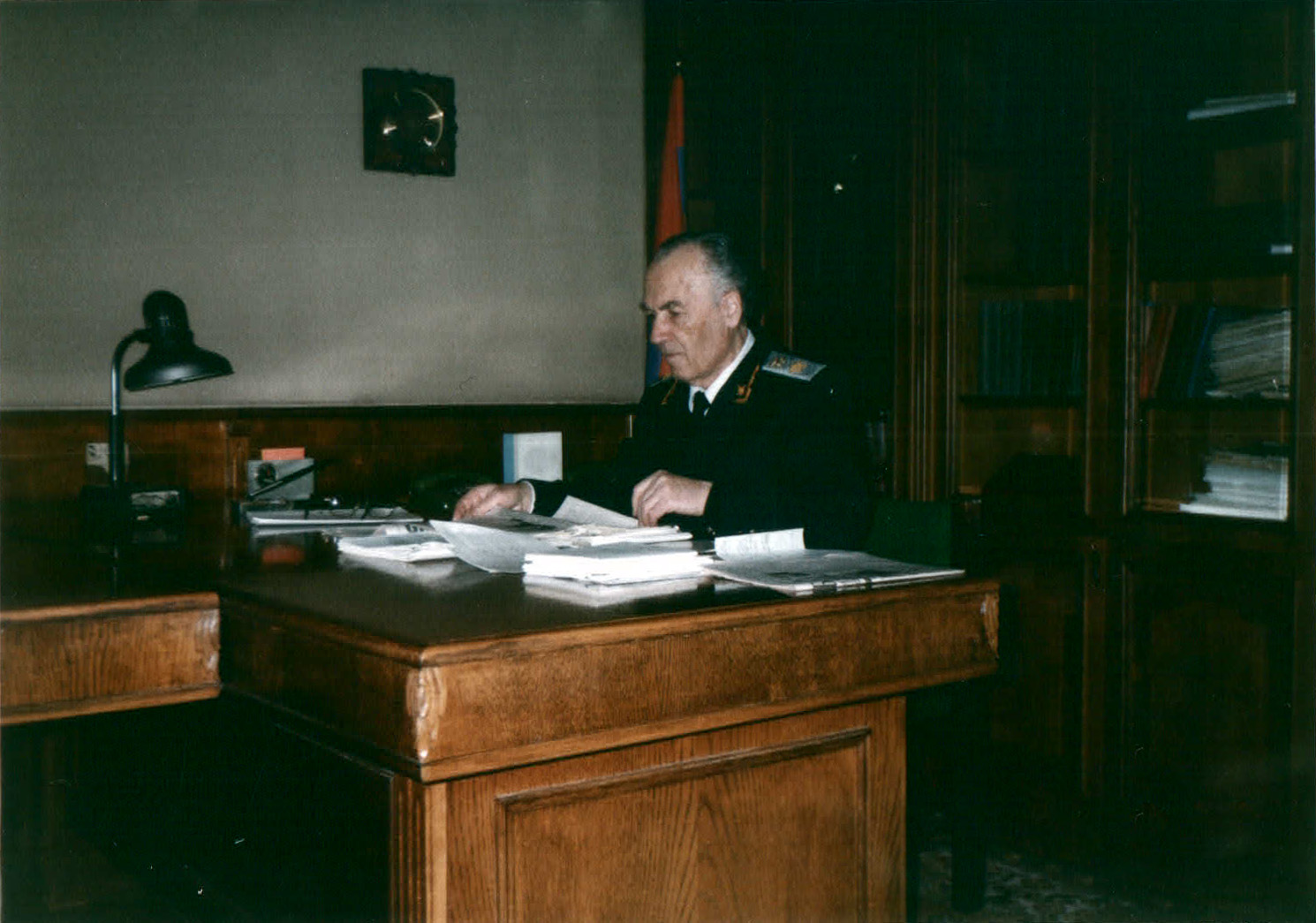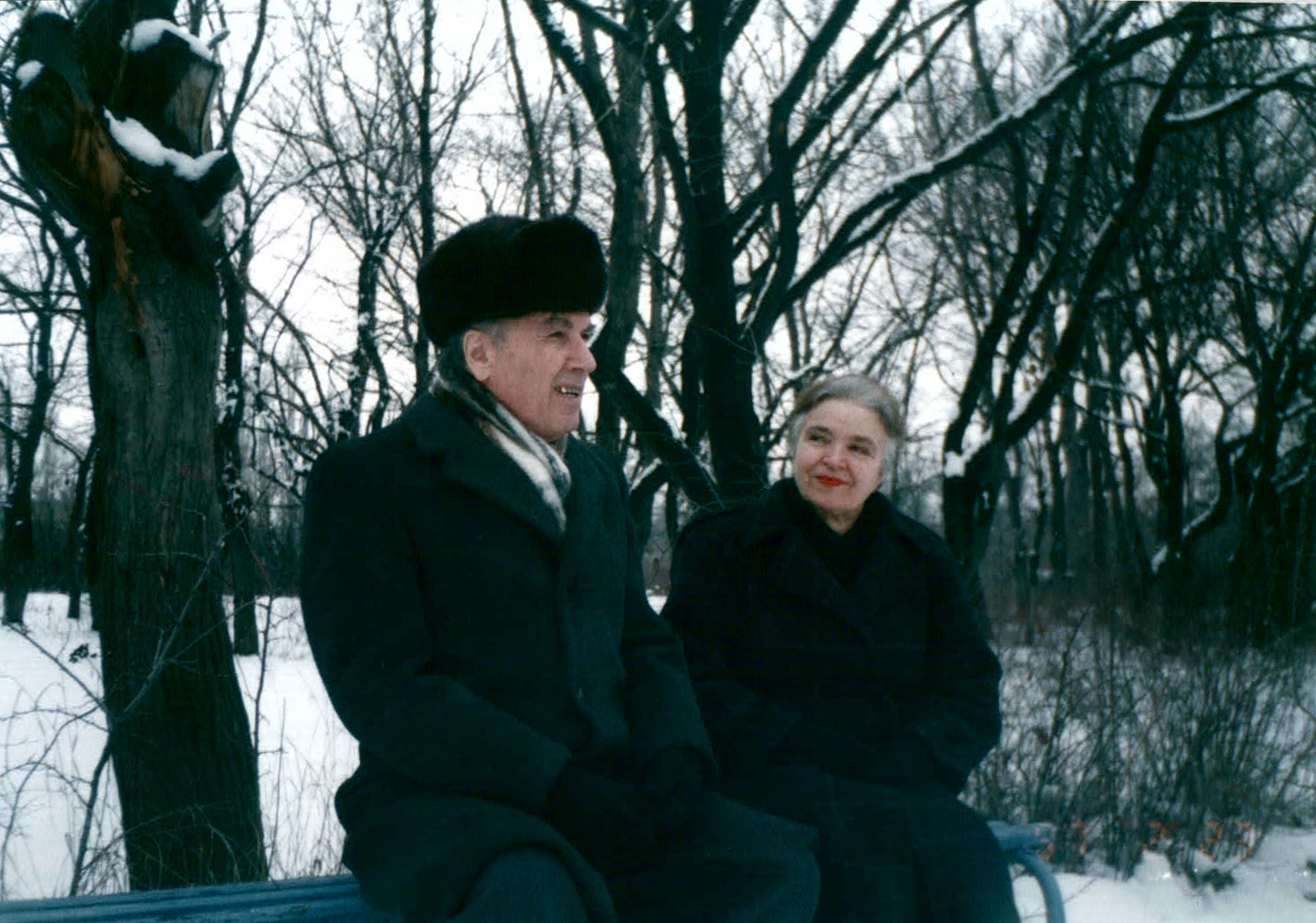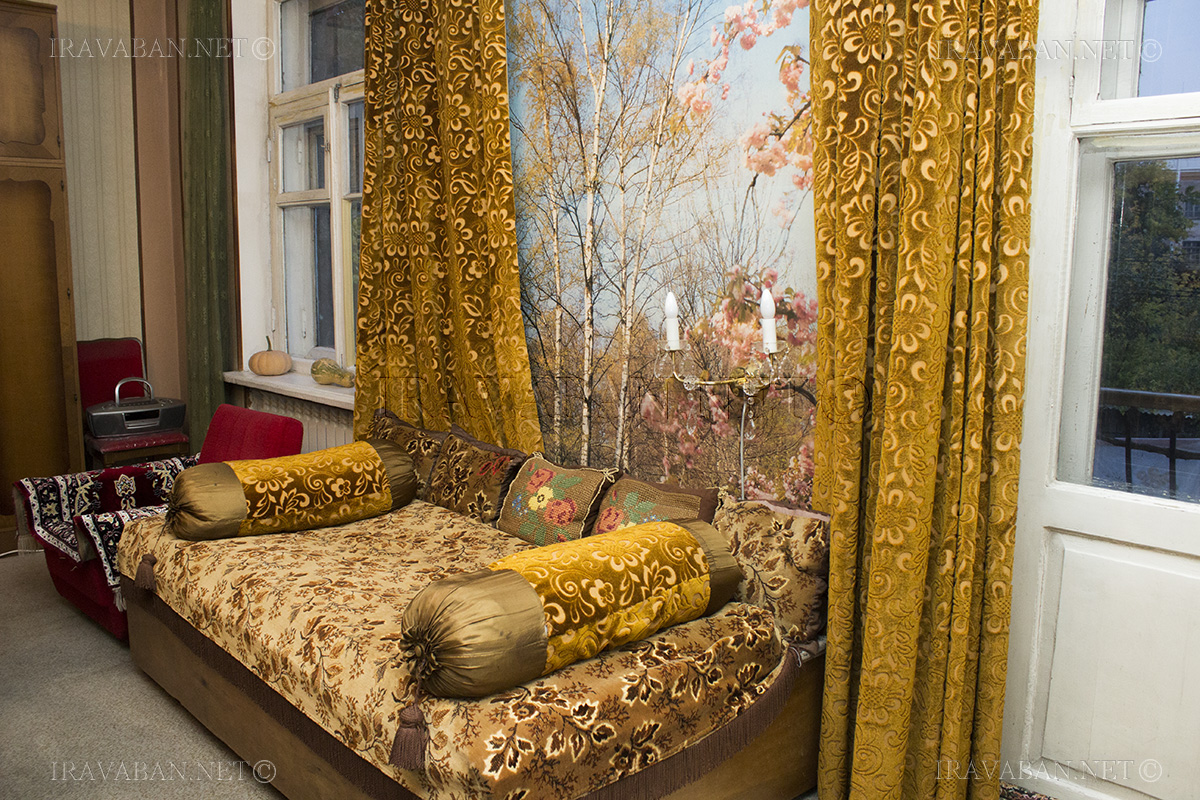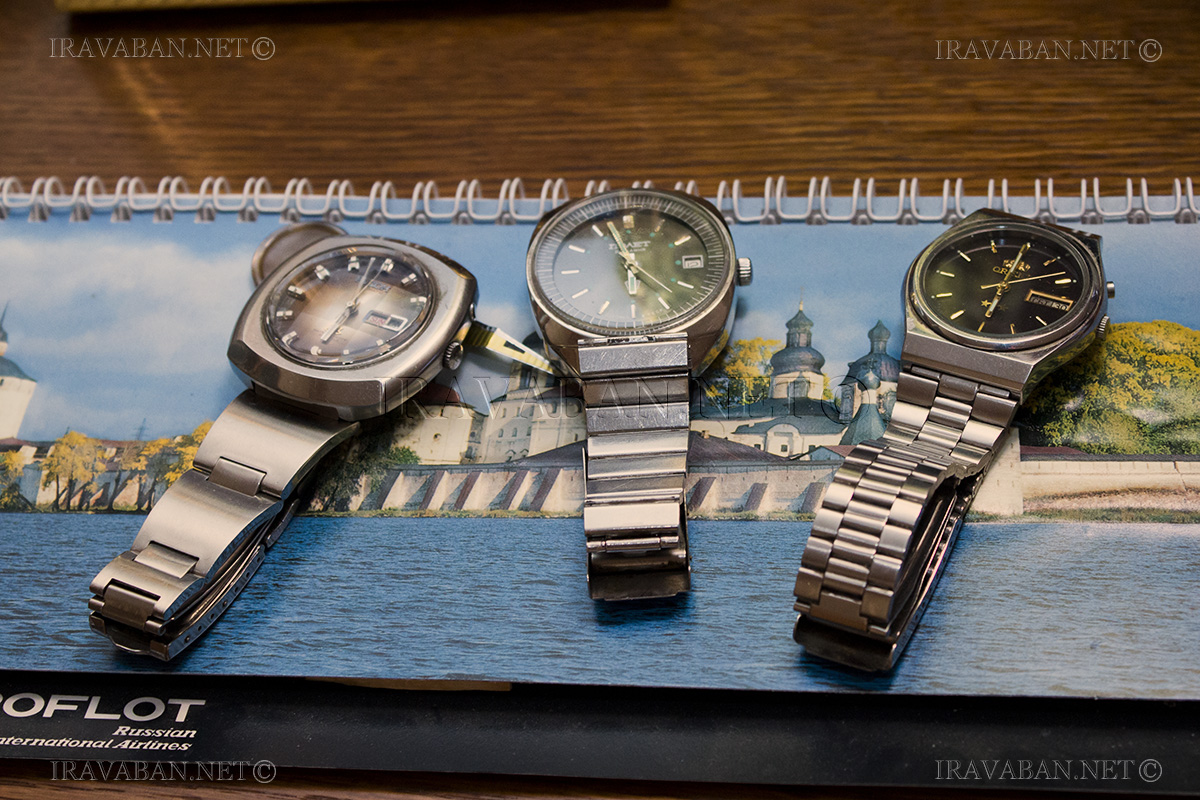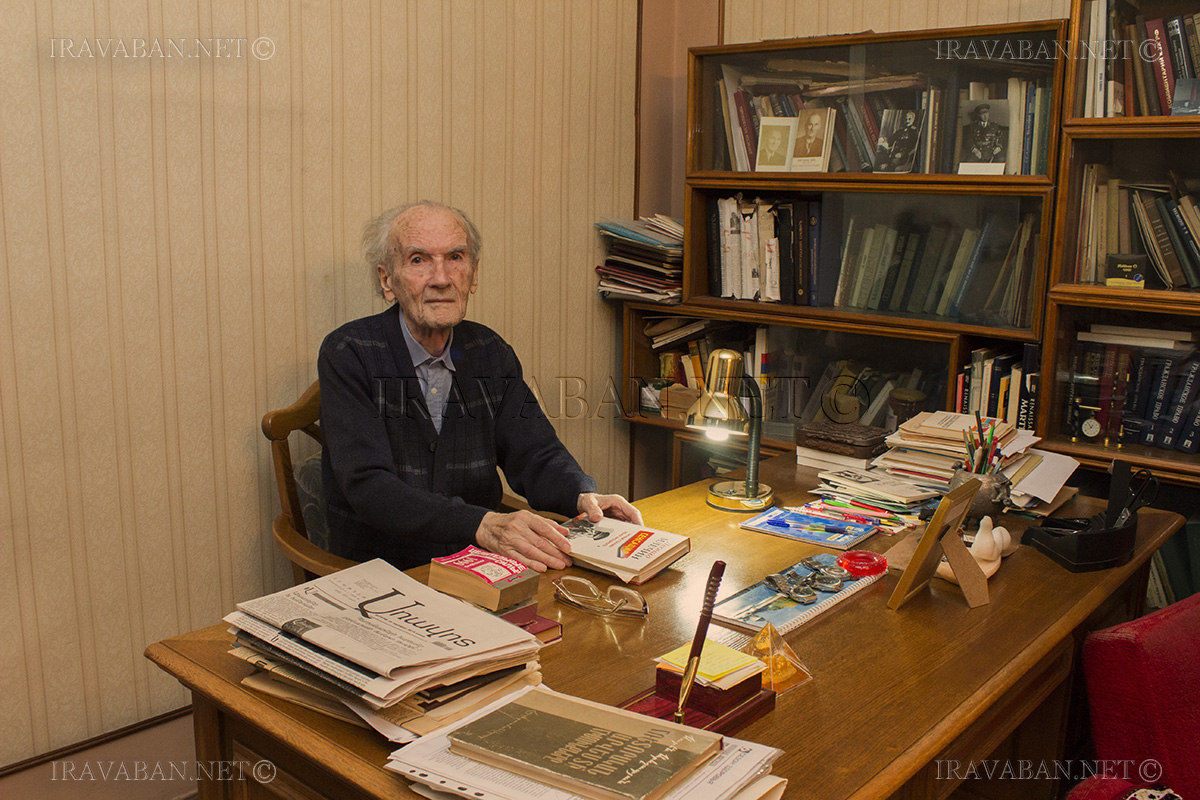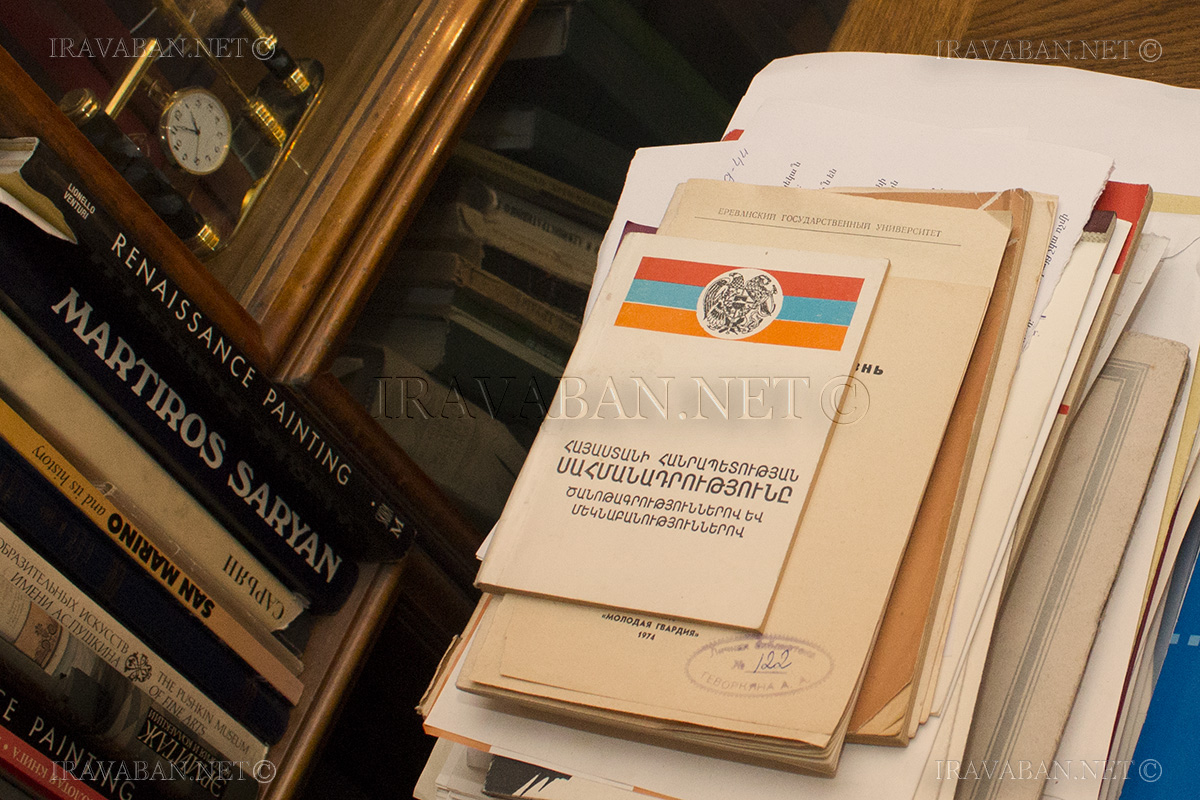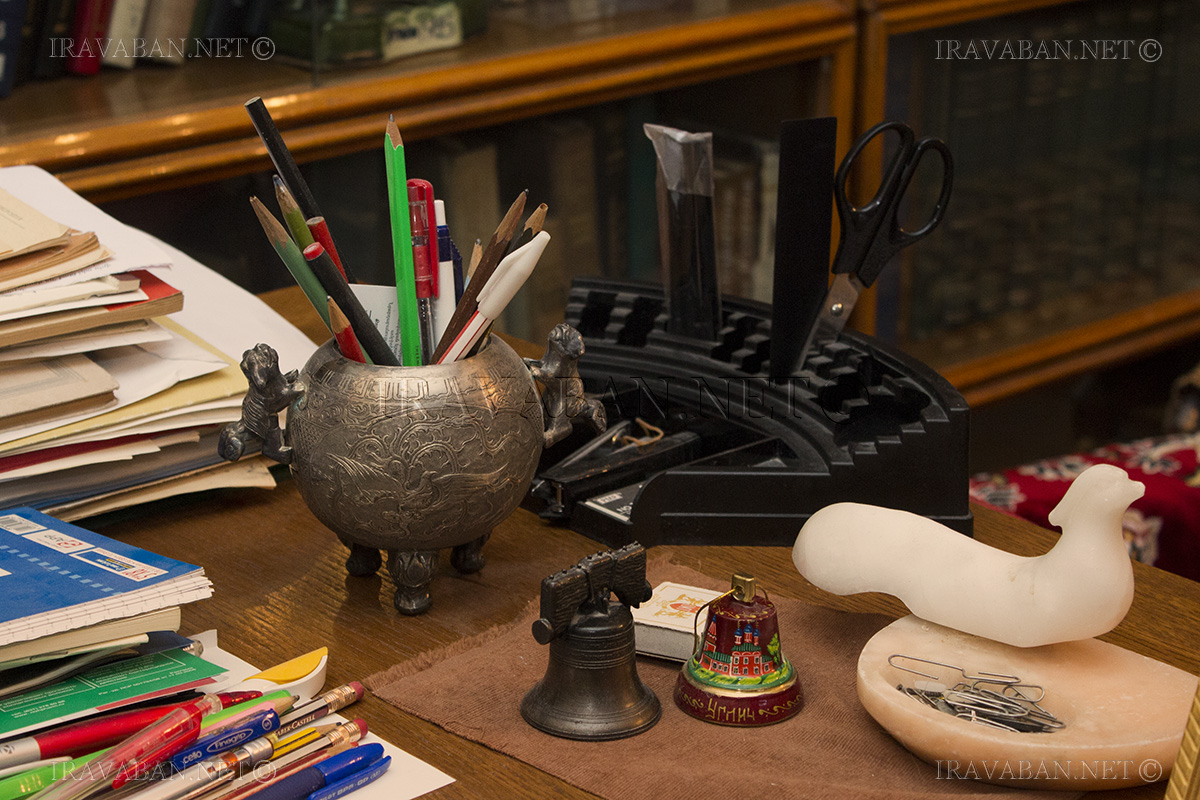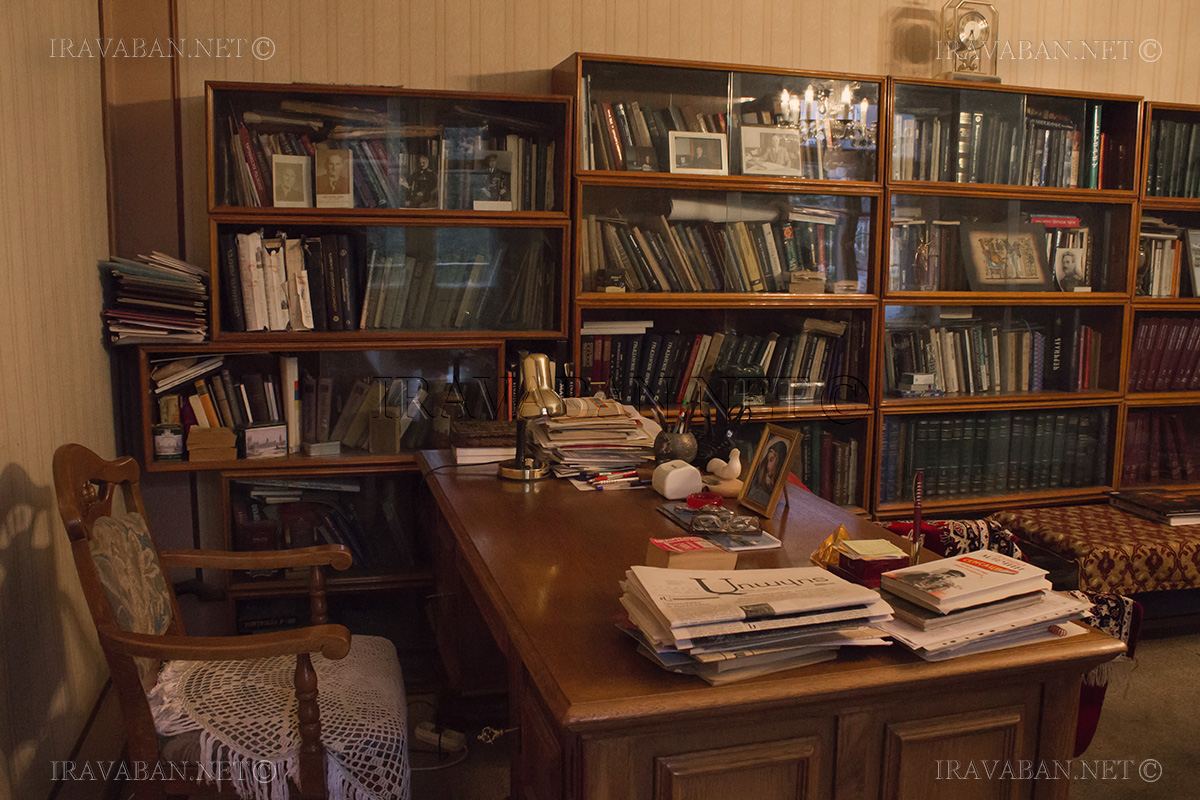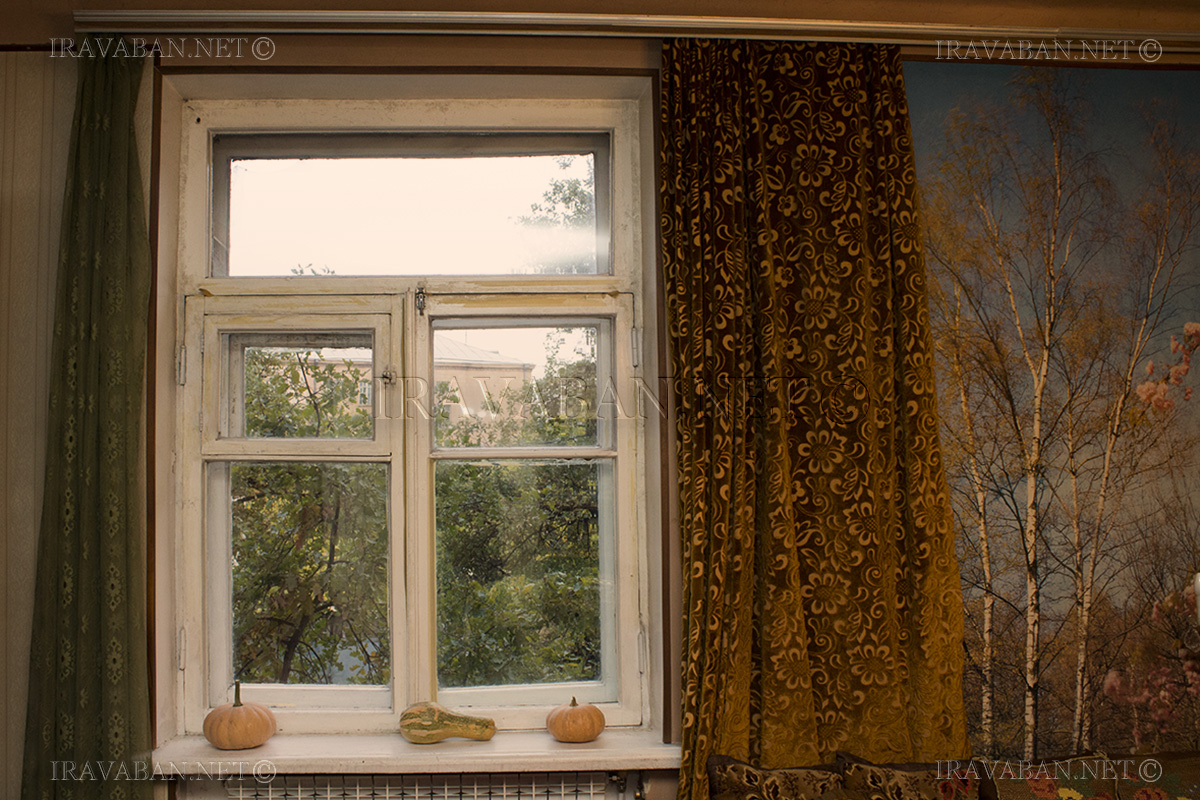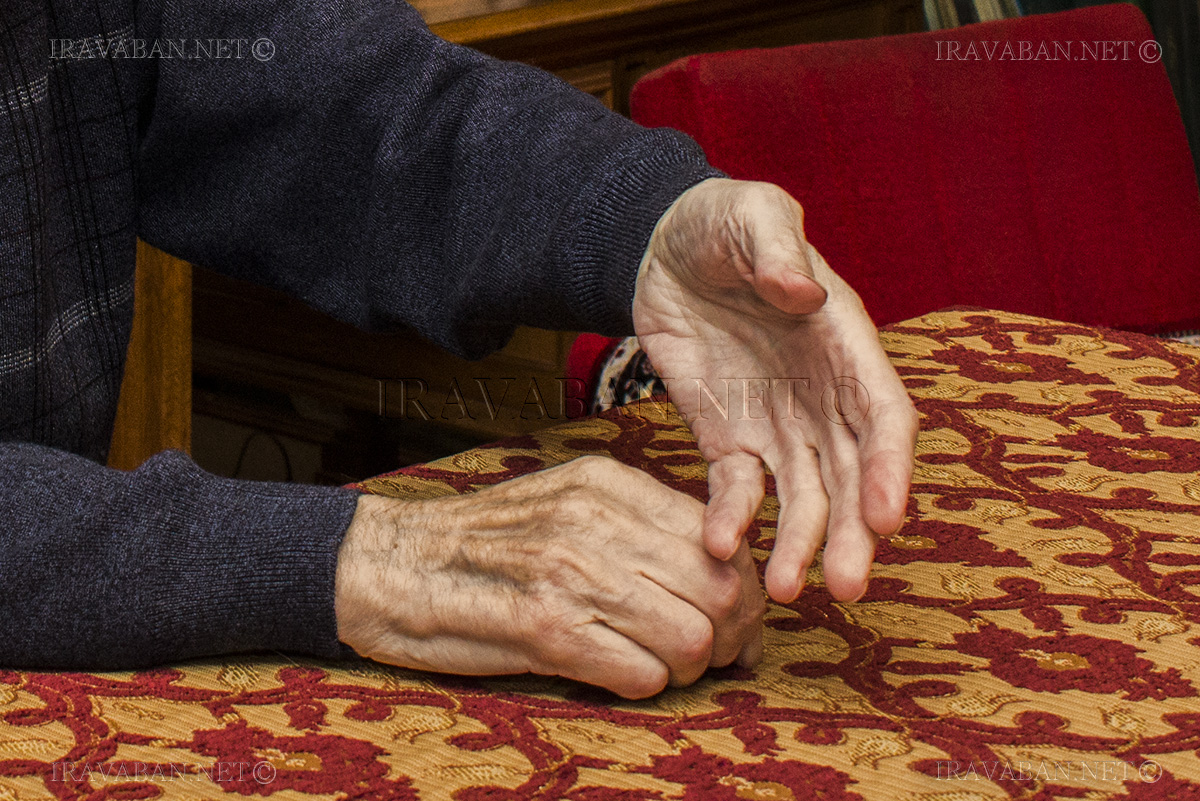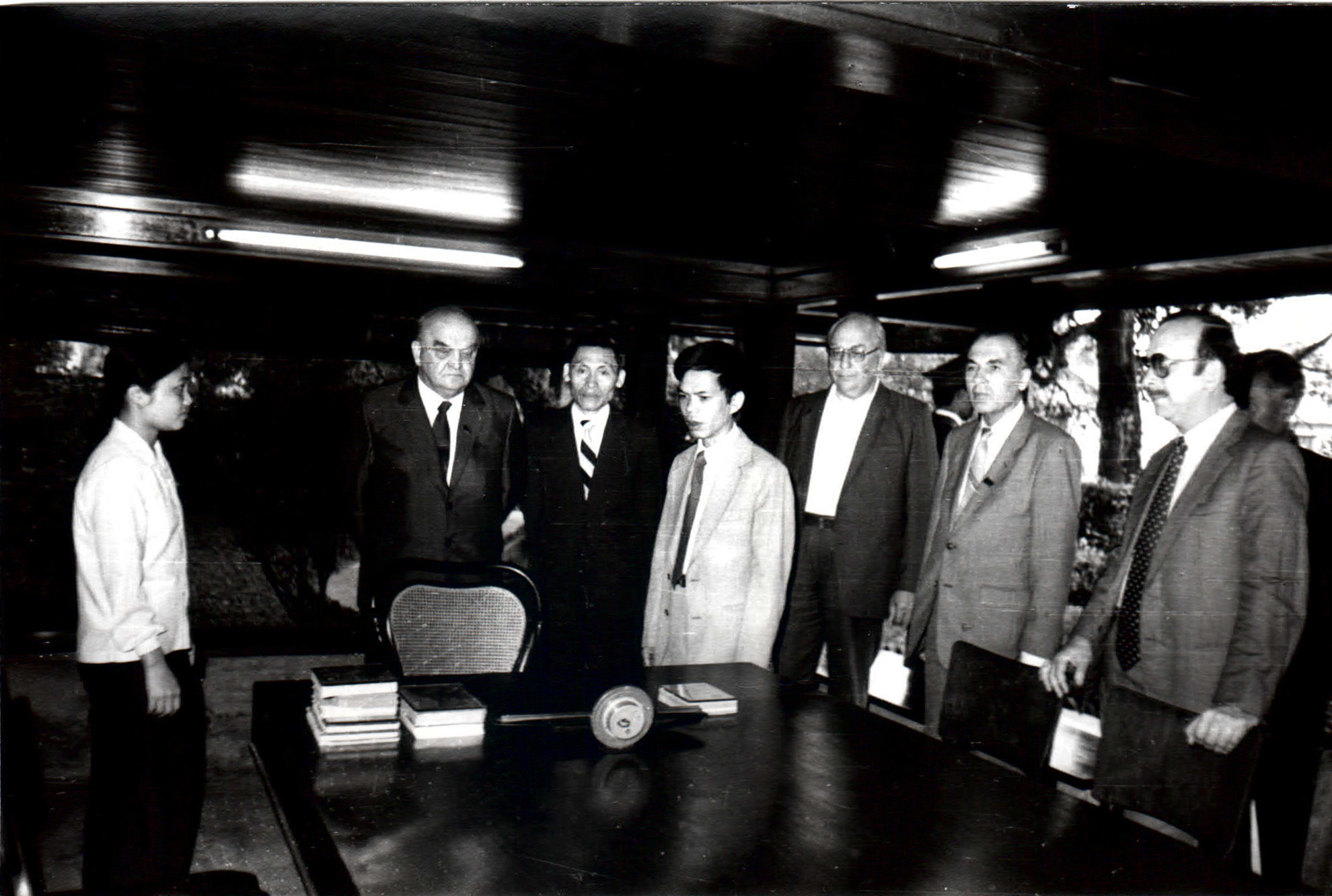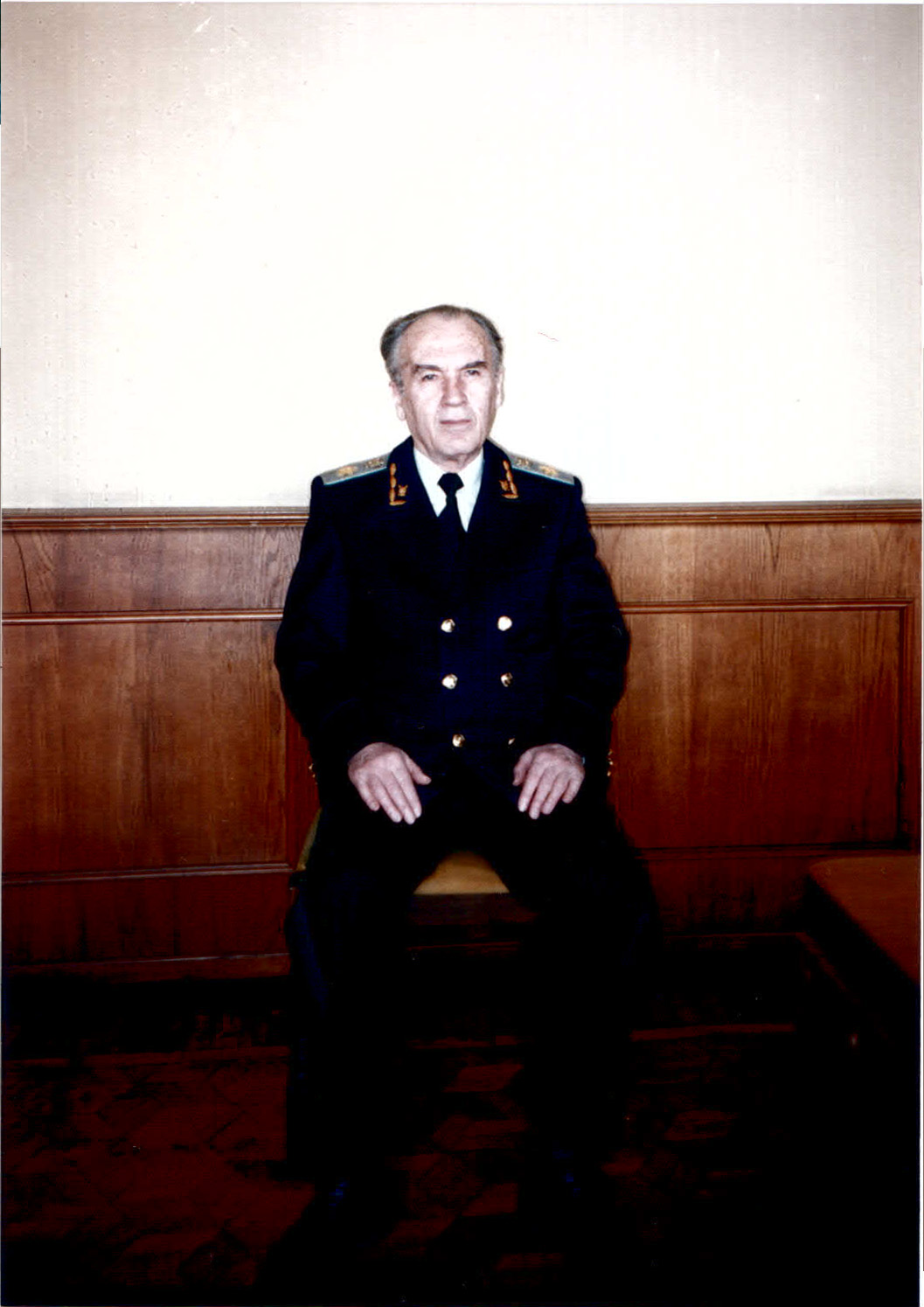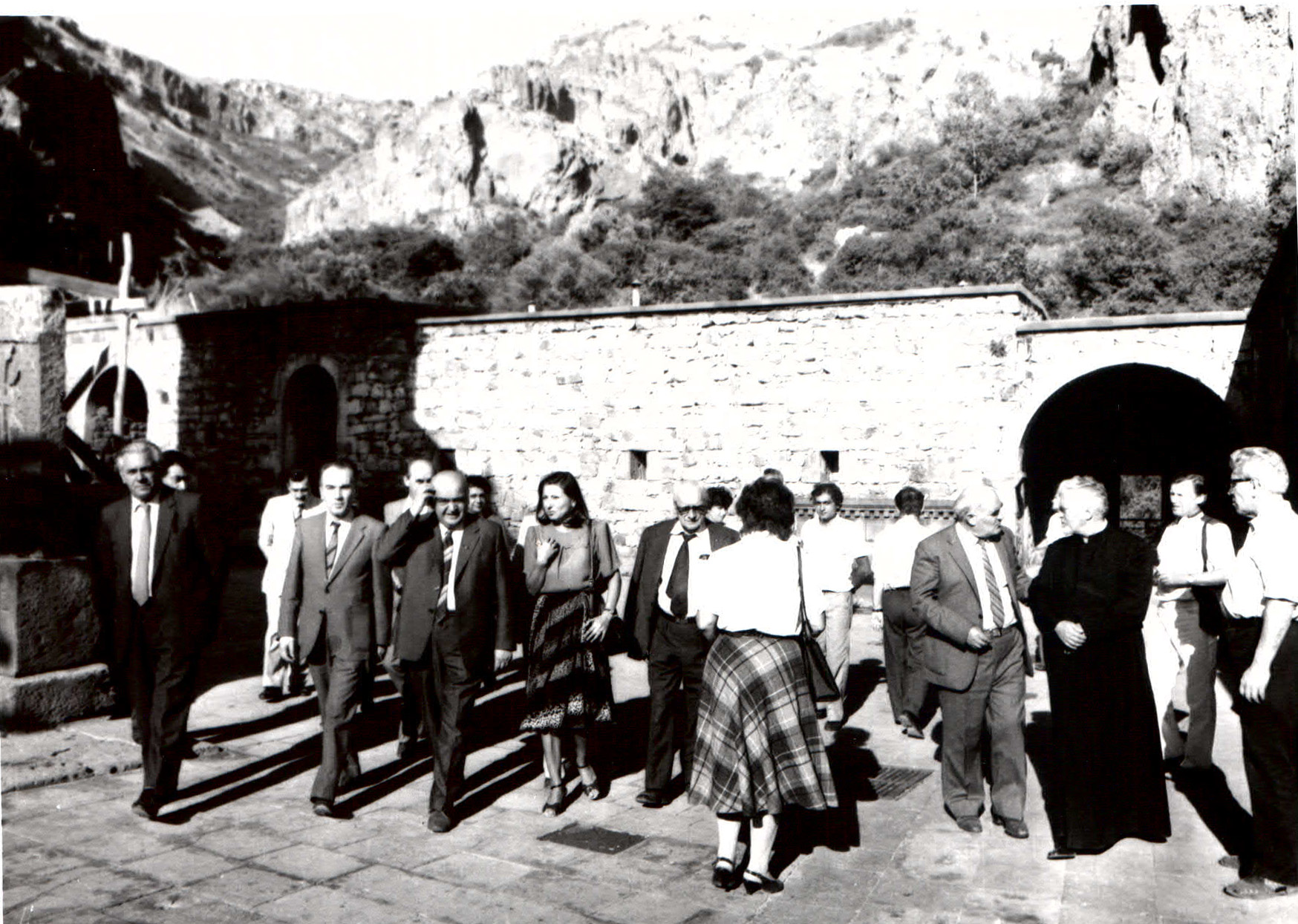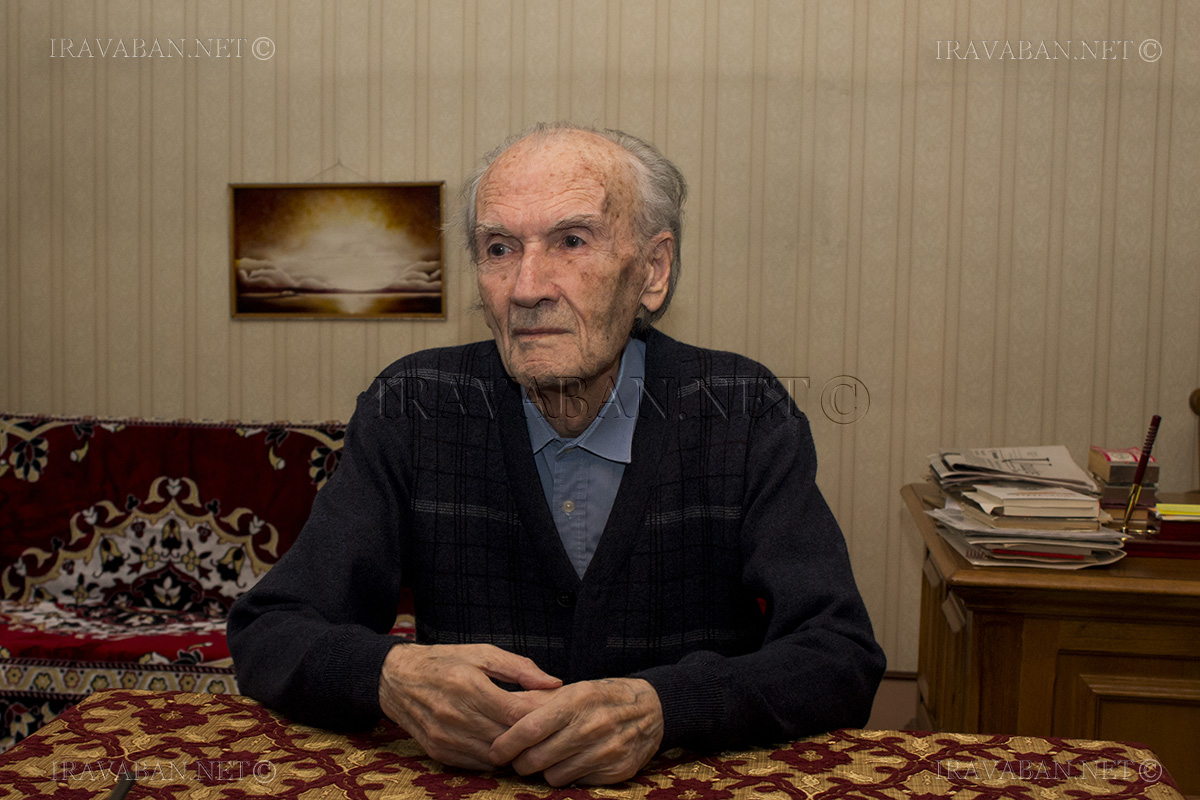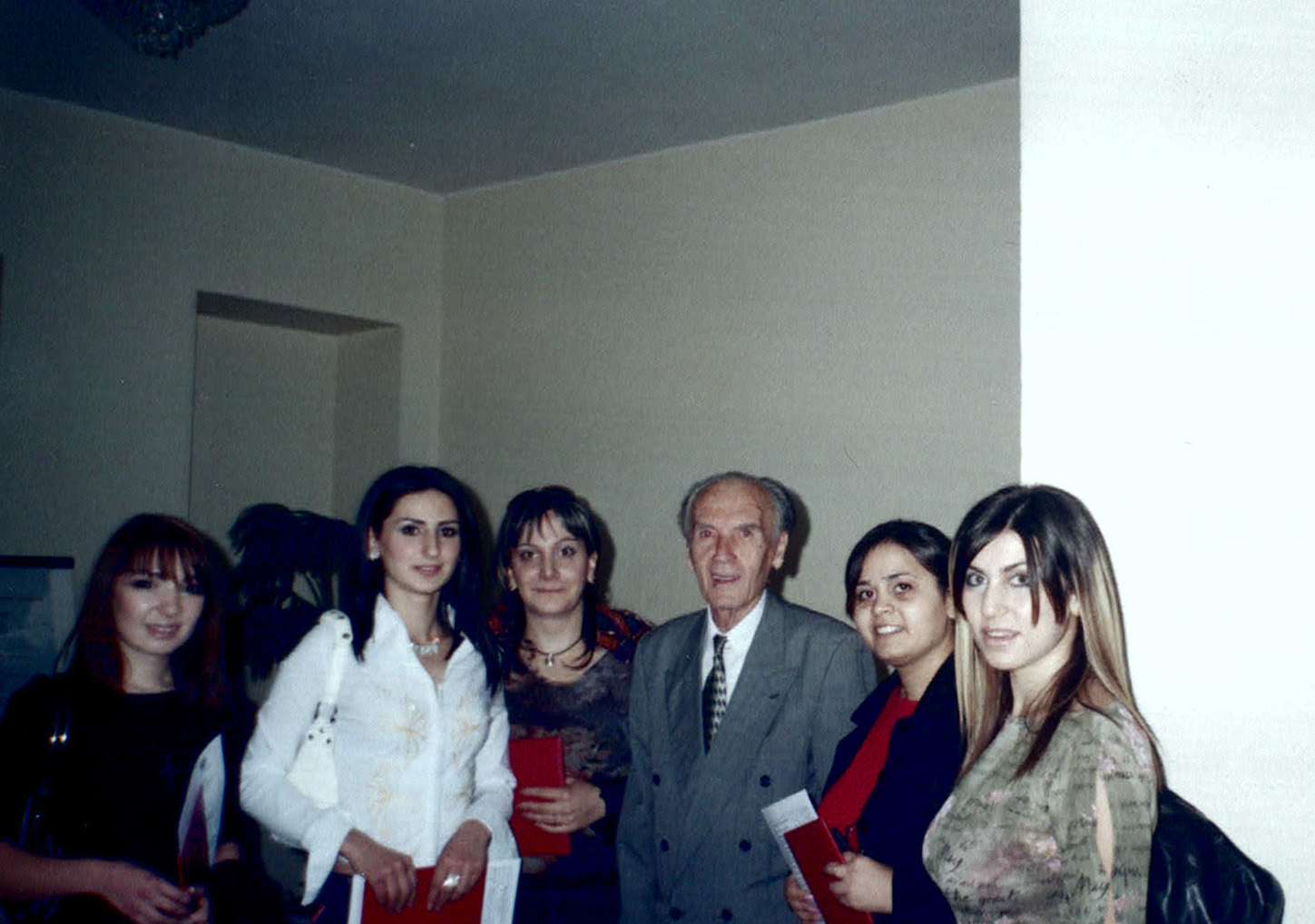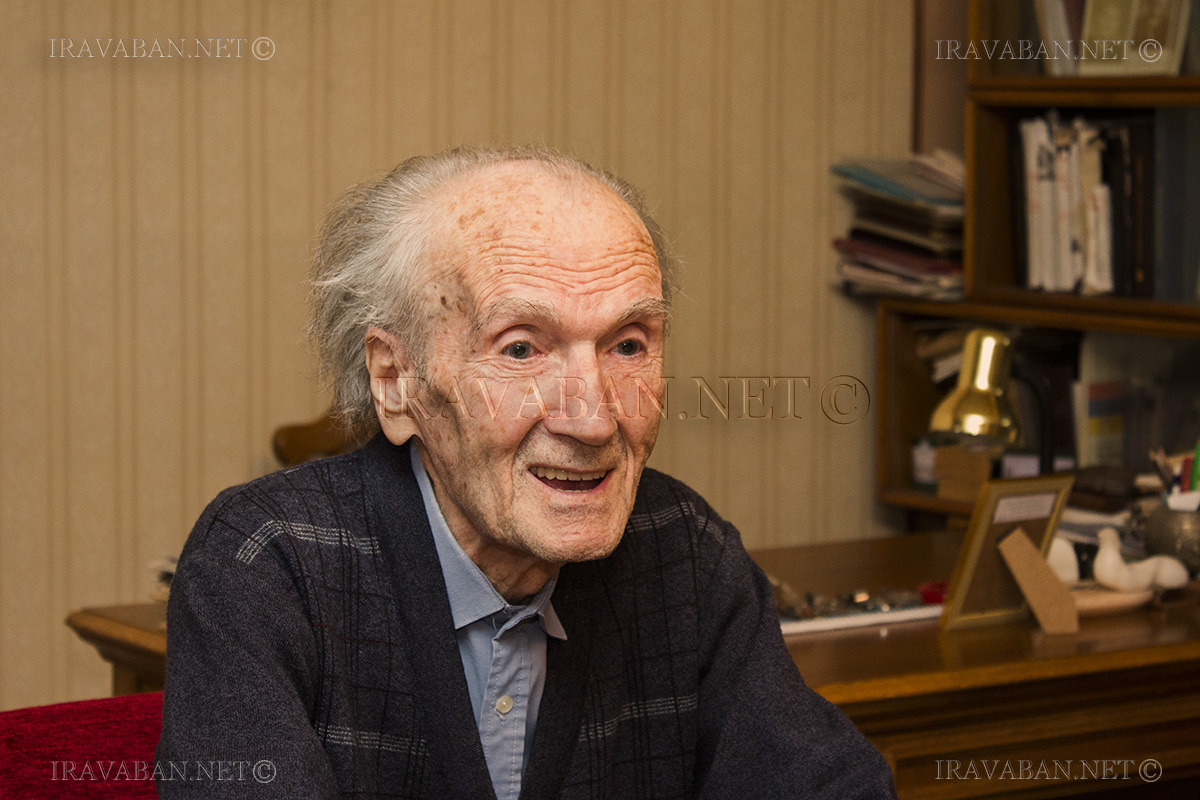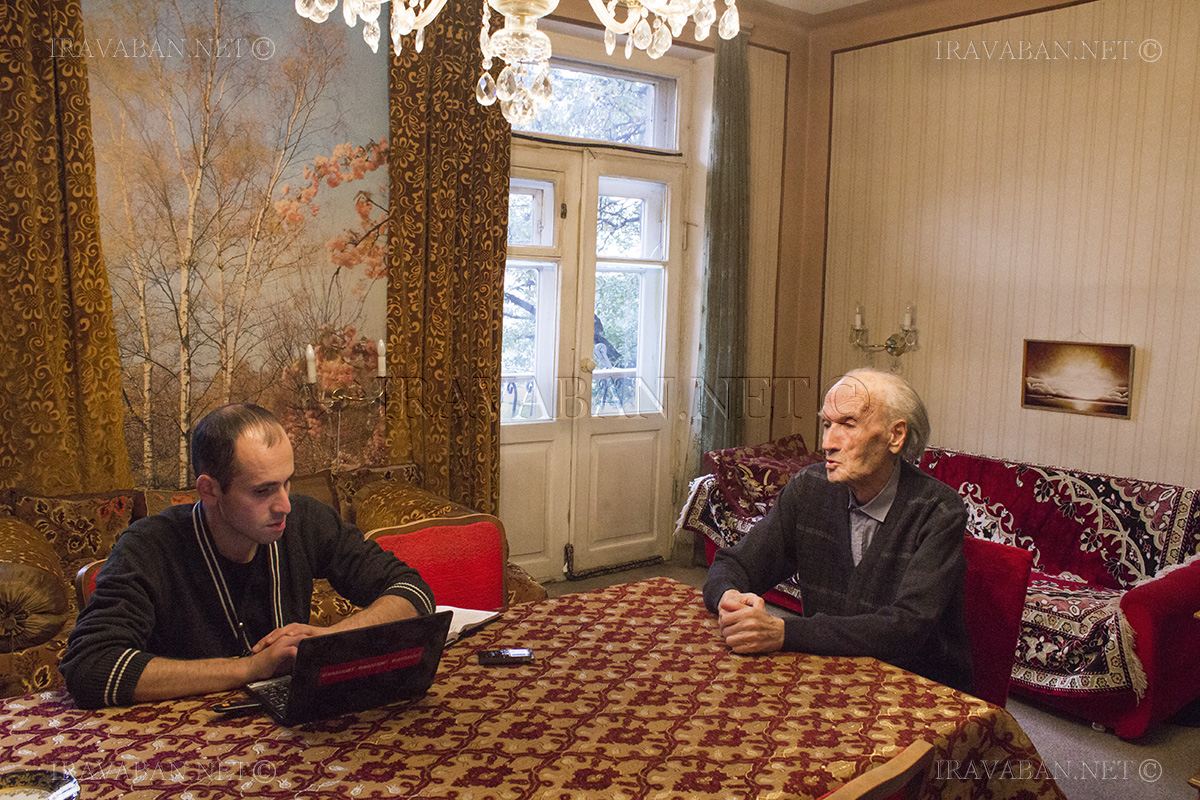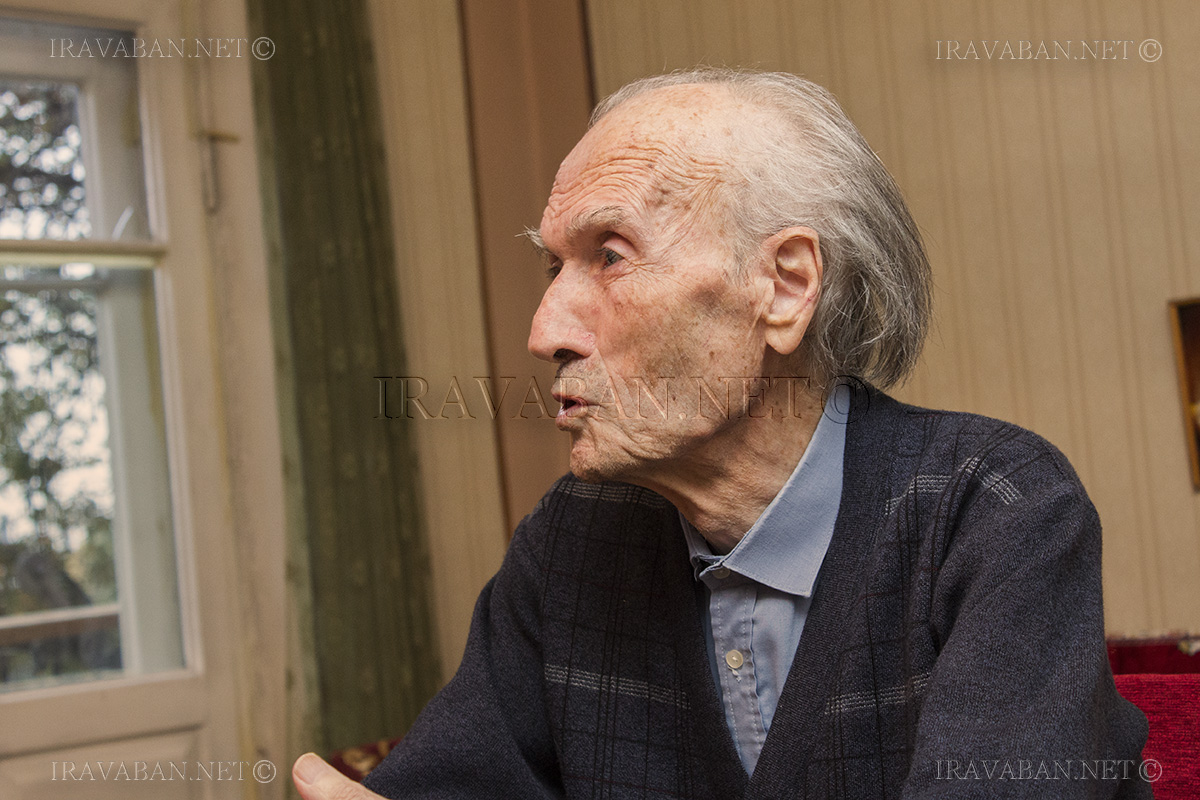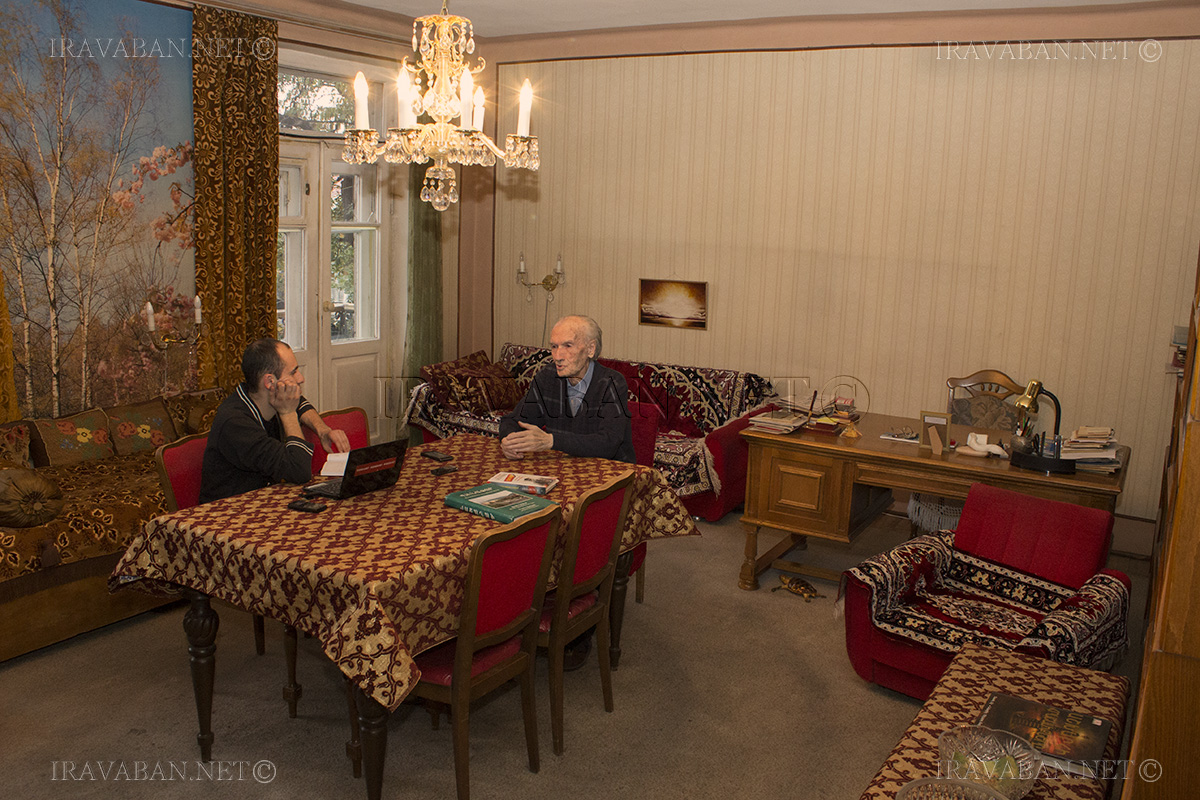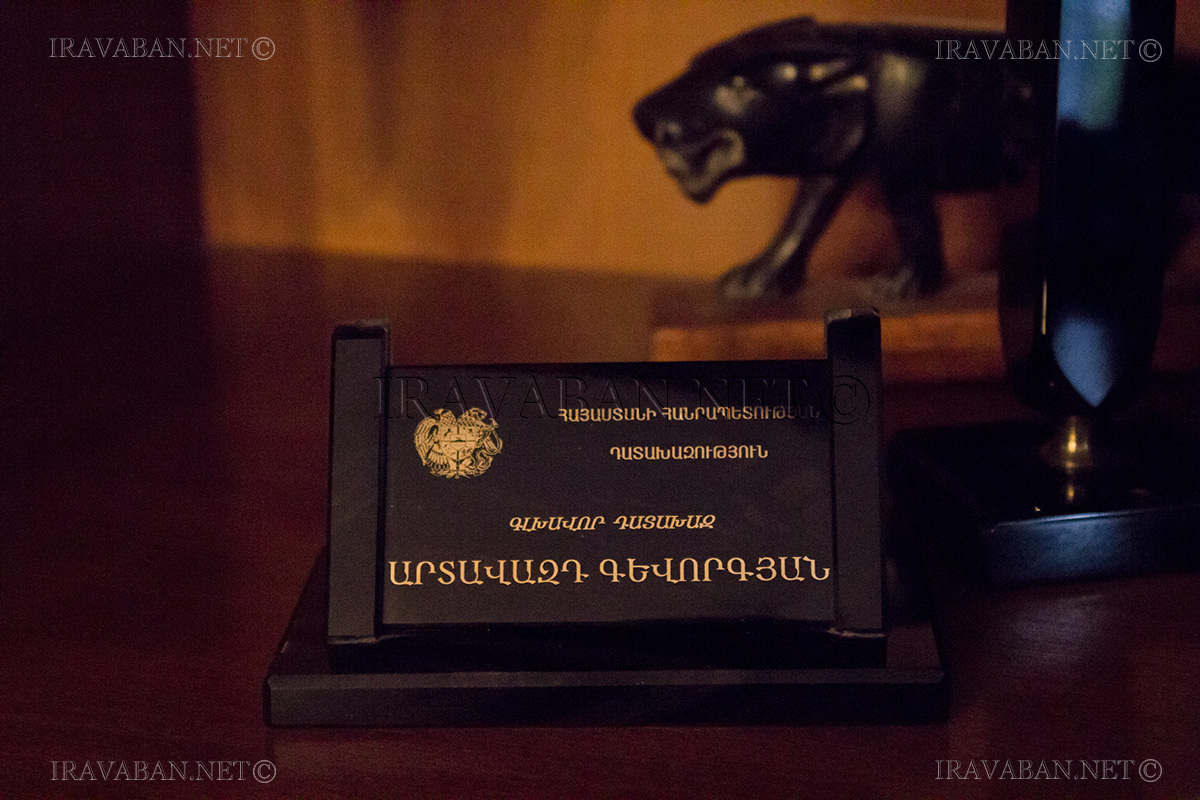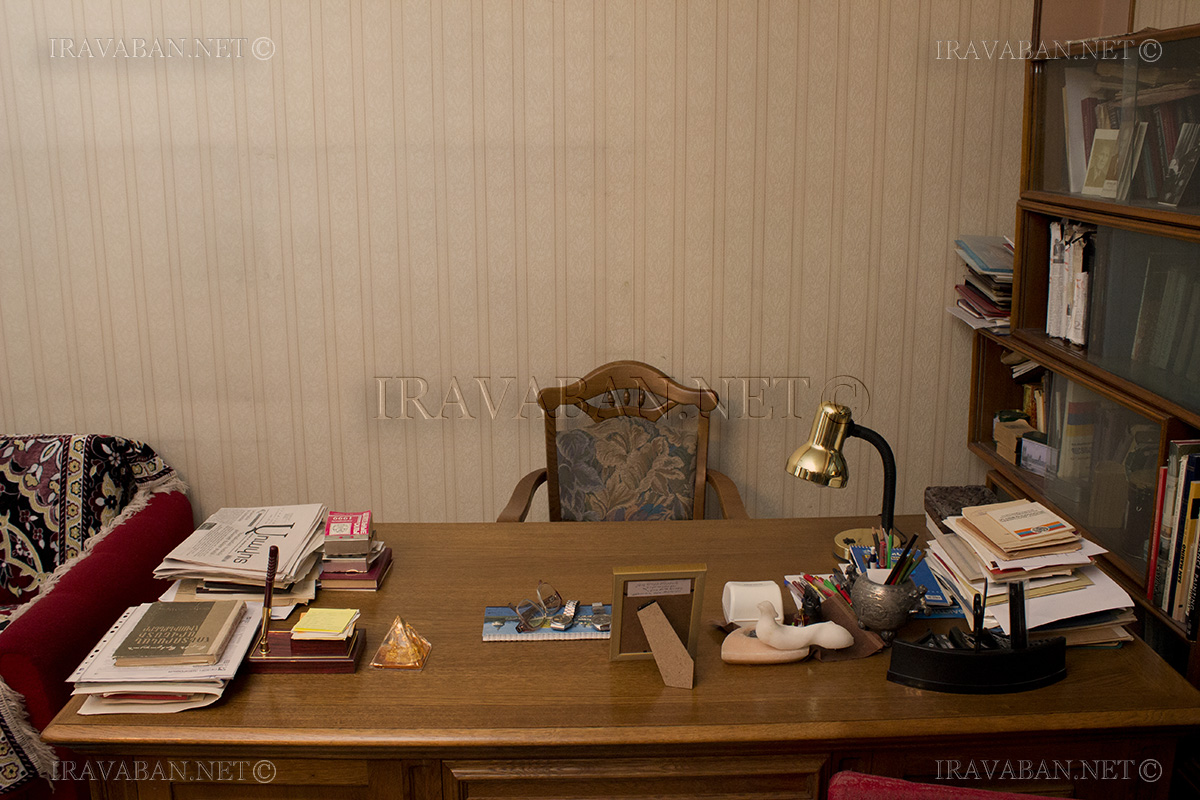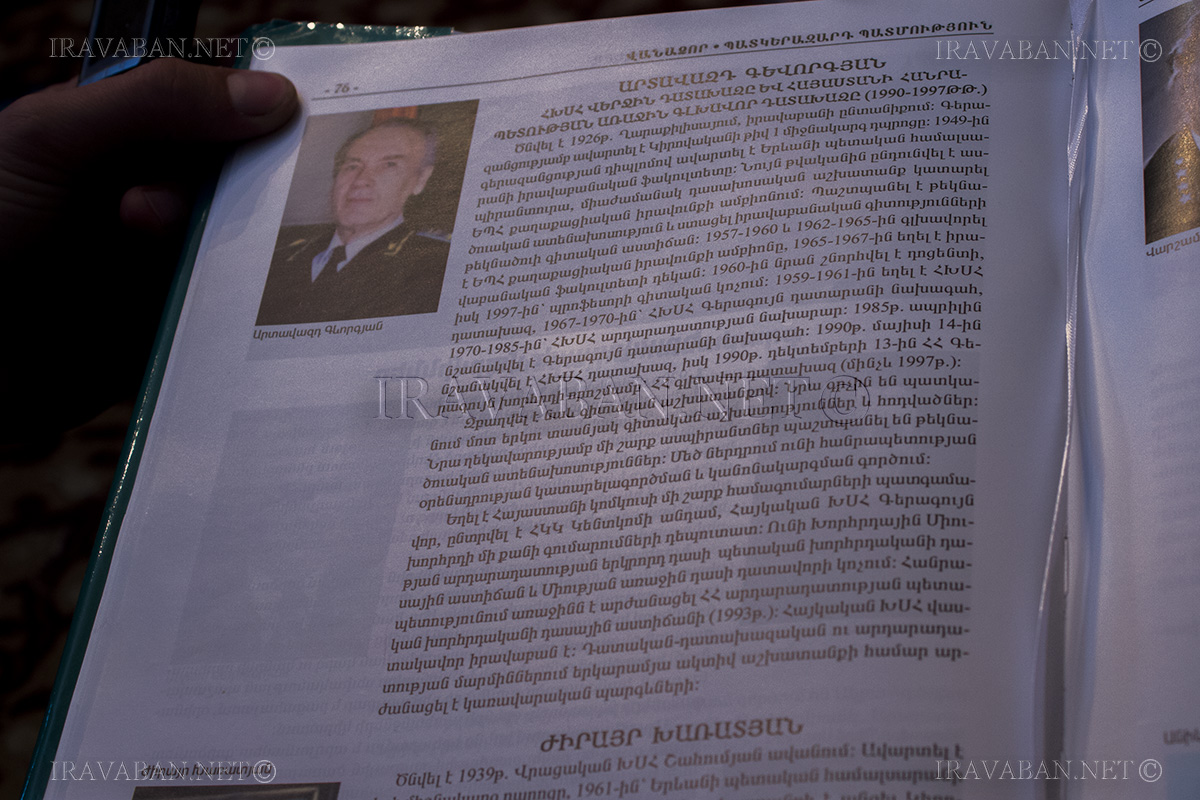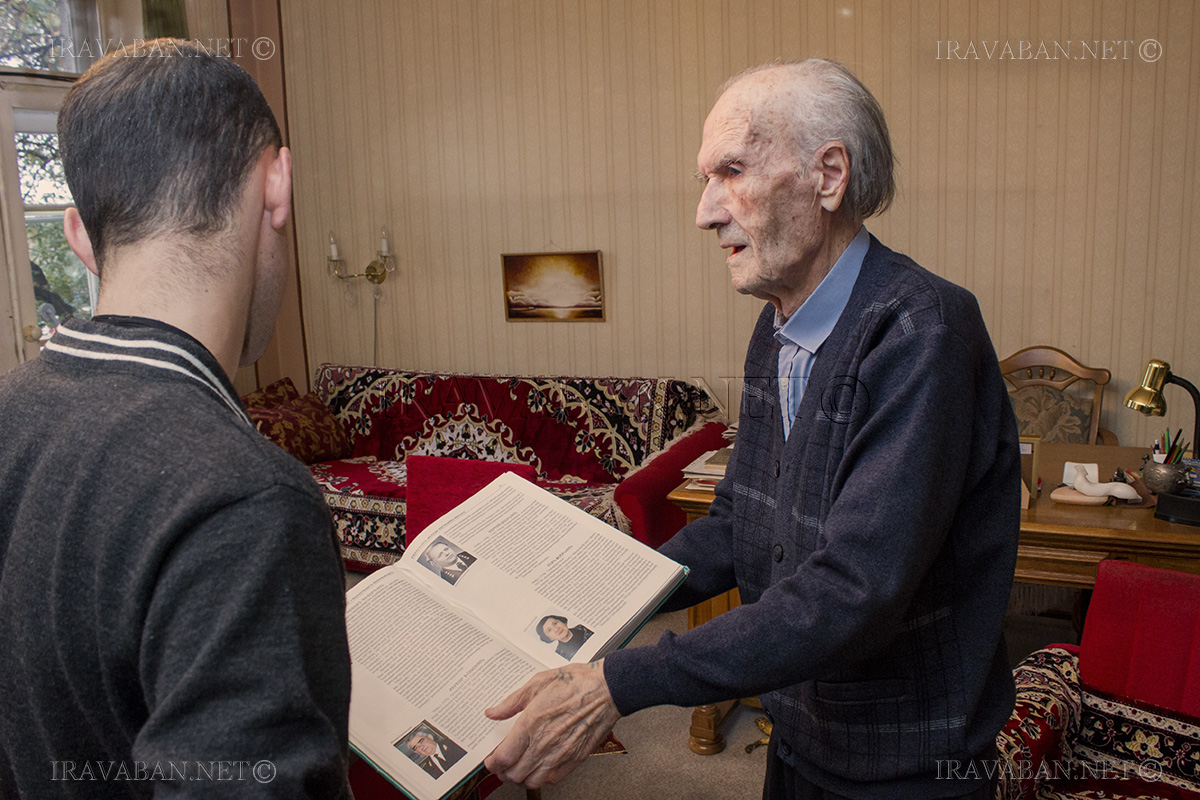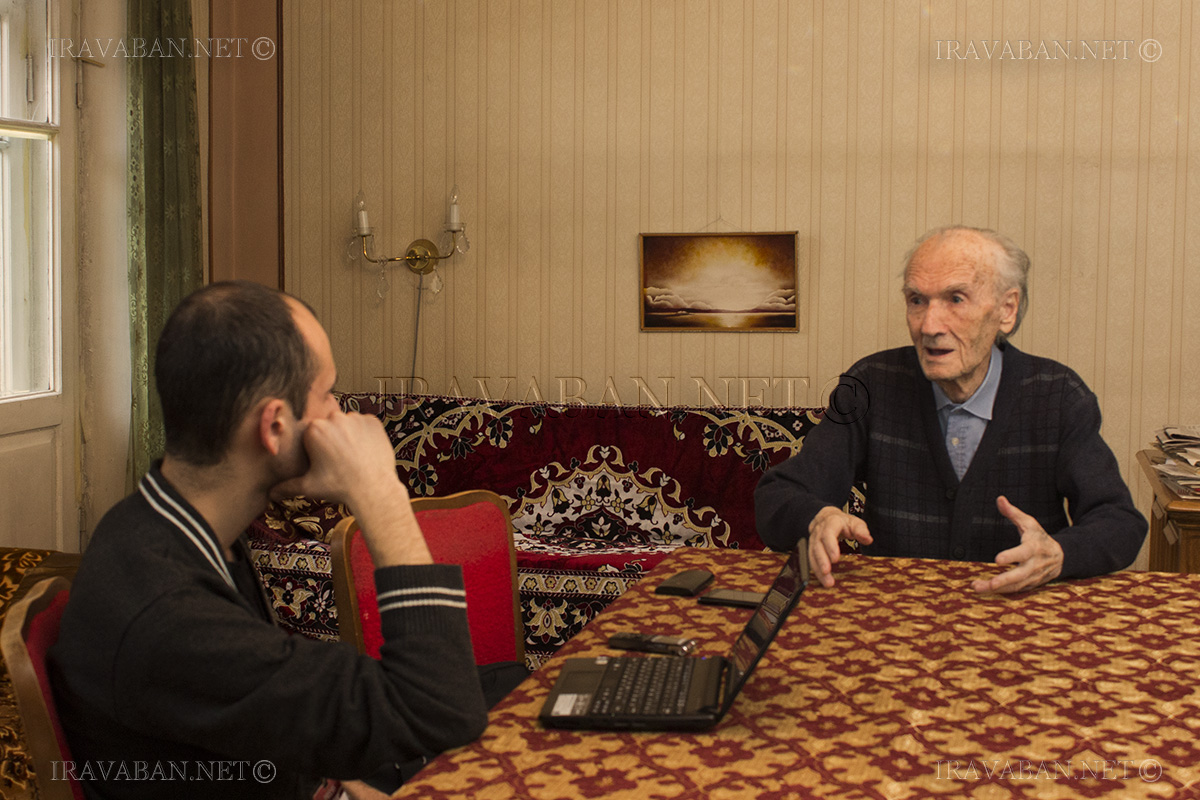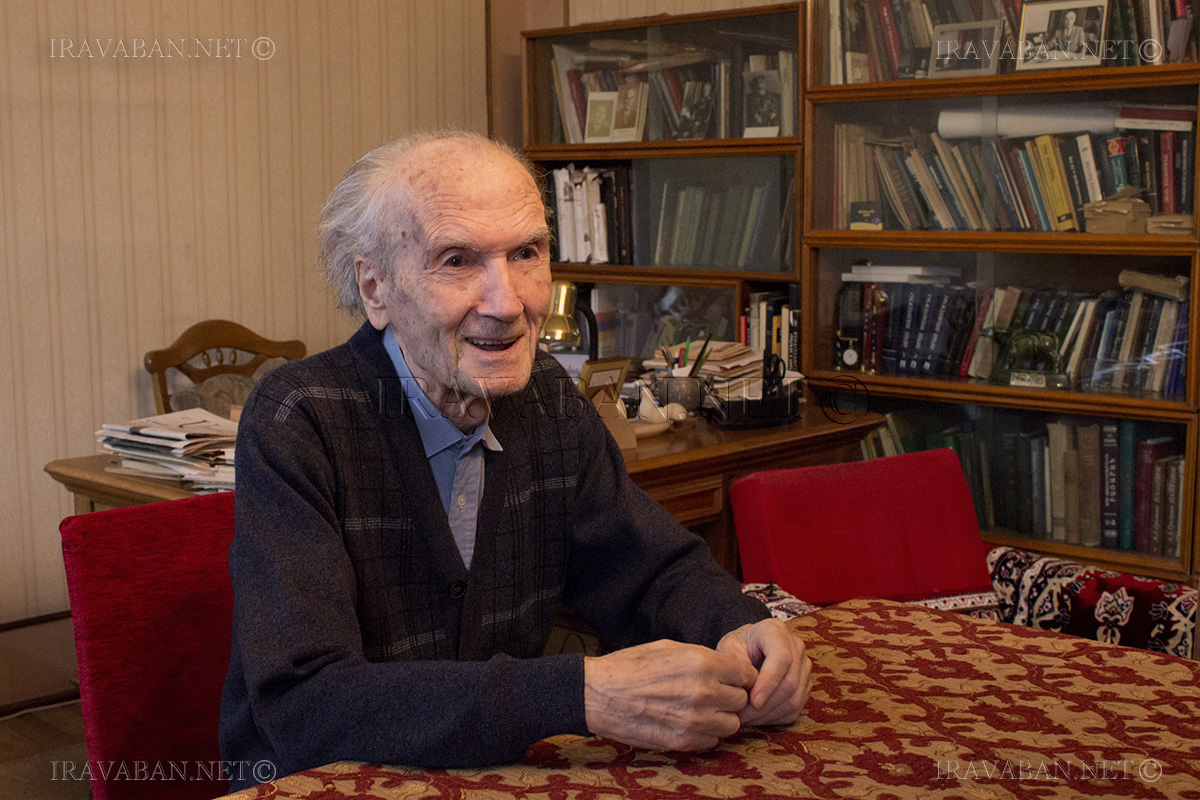Iravaban.net starts a new project – “RA General Prosecutors”, this series is launched with an interview with the first General Prosecutor of the RA Artavazd Gevorgyan.
Prosecutor of the Armenian SSR, President of the Supreme Court of the Armenian SSR, Minister of Justice of ASSR, General Prosecutor of the Republic of Armenia, Dean of the Faculty of Law at YSU, Head of Chair, State Counselor of Justice. Artavazd Gevorgyan`s positions can be continued. He was the youngest prosecutor of the ASSR holding this position at the age of 33. Mr. Gevorgyan stands at the roots of establishment of the Prosecutor`s system in the third Republic of Armenia, he held the position of General prosecutor of the newly independent republic of Armenia. He had all the opportunities to live a luxurious and secure life. In his photos we picture a modest office, you can`t find an expensive furniture there, his modest lifestyle is kept till today.
Artavazd Gevorgyan felt the bitterness of unlawfulness and injustice from his childhood. He says that he has gone through hellish days, so he decided to become a prosecutor and end the unlawfulness. And it happened. What has been kept in his memories, what does he remember from the case of “Karabakh Committee”, why was Vano Siradeghyan visiting him? Find the answers to these questions in the interview.
Mr. Gevorgyan, how did it happen that You entered this system, was the decision to become a prosecutor made automatically or it was a childhood dream as it often happens?
In Kirovakan our home was next to the building of State Security Committee. They were coming with trucks, waking up people, arrest them and take them with them. I was 11 years old and I was thinking whether they would take my father on that day or not. When I was going to school next morning, those sitting next to me were saying that their fathers had been taken away, and it happened every day. We had residence houses, not state apartments, but there were also other buildings were people were living as renters. If they were taking the man, next morning they were coming and expelling the family members from their rooms. “Your father was working in the Printing House, that`s why that room was given to you, now he is detained, you don`t have any connection with the Printing House, and you have to free the room”, they were saying. Besides, they were bringing detainees from various villages to the SSC prison. During the night we were hearing the sounds of the trucks leaving the building, those detained were being taken to Leninakan, they were being fusilladed there on the borderline so that they could empty the cellars and bring new detainees.In the night when those sounds were heard, my father was gettinng angry. I saw all of this since the age of 11. I saw that hell, I was thinking – if I worked in those institutions, I`d end the unlawfulness. When I became a prosecutor, the situation changed. Joseph Stalin was dead, there were no more sanctions. I reviewed the cases of those ungroundedly shot. We were writing to the family that their father was shot in the mentioned year. This paper was needed by the family so that they could show that though their family father was killed, he was innocent.
What were the guiding principles for You when You held the position of ASSR prosecutor in 1959-1961?
We were quiet in terms of our consciousness, the human rights and the law were being protected, there was no excessive strictness, you can`t reach anything with it, you can neither bring up a person nor keep a state. This is what led us.
You were at the roots of establishing the prosecutorial system of the Third Republic of Armenia. What do You remember from those years?
I only remember that there was enthusiasm that they won`t interfere in our affairs, the implementation of justice will rest with our court. In fact the realization of justice is quite difficult as who are the ones to implement it – people, and people are different. Some people were trying to interfere.
The case of Karabakh Committee was one of the famous cases during your term in office. The press spread news that You passed the case to Levon Ter Petrosyan. Was it so?
I have to remember. There was just one episode when suddenly a mysterious noise was raised “Where is the case of Karabakh Committee?”. But then it turned out that it was given to Levon ter-Petrosyan by signature. They thought the case was closed, but it was given to him.
Who and when was it given to him?
From the prosecutor`s office it was given to him and a tale was created as if it was destroyed. While when he learned about these rumors, he said the case is with him and he could bring it any time they wanted.
During Your term in office Vano Siradeghyan was the Minister of Interior, was it easy to work with him?
There were many people, you ask such a difficult question. Nevertheless, he was visiting me as a prosecutor, he was given directions within the law, then he was leaving, there was nothing extraordinary. I made sure that the Prosecutorial control exists over the Ministry of Interior, that was why I could be not concerned.
Several prosecutors have changed after You. Is this system as You wished to see it?
It is difficult to say, I am far from it now, how can I assess it? It is hard not only in the prosecutorial system in terms of everything being interconnected with each other. I know one thing, the society should become exemplary, so that no sphere stays behind. The greed of the people is horrifying. Why do you accumulate so much wealth if you work in a law-enforcement system? What does it mean? Do you think that while you are holding the office you should do this and that? This was launched while it shouldn’t have. People should have felt themselves as citizens of the state.
Interview by Gevorg Tosunyan
Photos by Zakar Iskandaryan
Author of the idea – Karen Zadoyan

